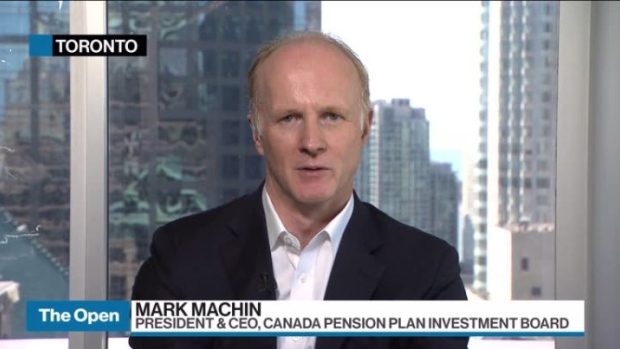Aug 10, 2018
CPPIB's Machin: Turkey's economic crisis 'not really a surprise'

The recent economic turmoil in Turkey that has seen its currency plummet to record lows is “not really a surprise,” according to Mark Machin, head of Canada’s biggest public pension fund, adding that he is “carefully” watching how developments in the country unfold.
Machin, president and CEO of Canada Pension Plan Investment Board, told BNN Bloomberg Friday that the fund’s exposure in the Turkish market is relatively small.
“We’ve been with one private equity fund there. That’s been a terrific partner of ours and actually until very recently, they’ve performed very well despite currency depreciation,” Machin said. “That’s really our exposure there. We watch it carefully.”
In 2006 CPPIB invested 75 million euros in a fund managed by Istanbul-based Actera Group, and an additional US$245 million in another Actera fund in 2012.
The Turkish lira hit record lows against the U.S. dollar on Friday, with the slide intensifying after U.S. President Donald Trump tweeted that he will raise tariffs on steel and aluminum imports from the country. The lira’s selloff comes as Turkish President Recep Erdogan has struggled to convince investors of how he will prevent the country’s economy from plunging into a financial crisis.
Machin said Turkey’s situation has deteriorated over time and anyone who looks at the country’s macroeconomics should not be surprised about what’s happening there.
“I think if you have rising inflation in your economy and you don’t raise interest rates and you have a lot of foreign debt, this is the type of thing that happens. And it’s happened time and time again – whatever economy you’re in,” Machin said.
On rising tensions between Canada and Saudi Arabia, Machin said the “diplomatic dispute” was not something that was relevant to CPPIB.
“Unlike Turkey where we have investments, we don’t have investments in Saudi Arabia. It’s not something that I can really comment on,” he said.
When asked about how global trade uncertainty could impact CPPIB, Machin said that while the tensions don’t help economic growth around the world, the fund can navigate its way around some of it.
“One of the things that is good for us is, we can invest in companies just about anywhere in the world,” he said. “For example, in emerging markets most of the stories are about domestic consumption and the rise of the middle class in these markets.
“So, provided we can get access to that rise in growth in consumption whether it’s through real estate or equities or other ways, then we can benefit from that and that doesn’t necessarily need that much international trade for that to continue to grow.”

